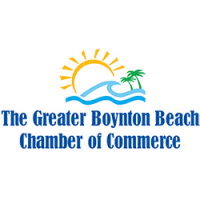Addiction is a complex, long-term disease with no known cure. As such, recovering addicts can experience temptations and cravings for many years after they\’ve stopped using. Many people have at least one relapse event at some point in their lives. In fact, relapse is so common that it\’s actually recognized as part of the recovery process.
If you\’re preparing to start addiction treatment, have just finished addiction treatment, or are worried about a loved one who\’s battling drug addiction, it\’s important to understand recovery as an ongoing journey, and one that\’s not without its challenges. Over 85 percent of recovering addicts will use again. Absent of the right treatment environments and treatment modalities, two out of three people will return to drug use within just weeks of starting rehab programs. The good news is that there are countless tools, resources, and support services that are aimed at helping people maintain their sobriety, limit the length and long-term impacts of relapse, and stay on target with their health and wellness goals. Failure in addiction recovery isn\’t a matter of insufficient willpower.
Highly addictive drugs condition the brain and body to become reliant upon them. When people abstain from these substances, it can take a long time for brain functioning and brain chemistry to normalize. There are also certain underlying causes of drug addiction that must be properly identified and managed in order for recovery to succeed. For instance, many people live with untreated mental health issues that are their primary motivation for using.
These individuals routinely use drugs or alcohol to mute the pain of chronic depression, bipolar disorder, general anxiety disorder, and many other issues. For these people, dual diagnosis treatment or treatment for comorbidities is essential. This helps create mood balance and teaches healthful, effective strategies for managing co-occurring mental health disorders without using drugs. Ultimately, the best way to ensure success in addiction recovery is by finding rehab programs that offer a comprehensive range of needs-specific services and solutions.
Simple Strategies for Ensuring Success in Addiction Recovery
Understanding that relapse rates are high, there are several steps that recovering addicts and their family members can take to minimize the risk of relapse. The first of these is to commit to treatment that\’s sufficiently long in duration. With longer treatment times, people are able to take longer breaks from the most common temptations, triggers, and stressors. This is especially true with inpatient treatment. Unlike outpatient programs and other early support services, inpatient treatment:
- Is performed on an entirely closed and substance-free campus
- Can last six months or more
- Offers a multi-pronged approach to addiction recovery
- Makes addiction recovery the patient\’s sole focus
Comparatively, although outpatient programs can be equally long in duration, they provide a higher level of personal freedom. While attending these programs, people can continue interacting with their friends, visiting their favorite social scenes, and engaging in a diverse range of social activities. Although the increased freedom of outpatient treatment is meant to provide the opportunity to continue working, going to school, and caring for minor children, it can easily be misused. A person\’s chosen treatment should also be in line with their unique needs. While some people require dual diagnosis treatment for co-occurring mental health disorders, others find that the underlying causes of their addictions are directly connected to:
- Unresolved guilt or grief
- Current or past traumas
- Negative behavioral conditioning
- Low self-esteem
or even genetic predisposition to addiction. Drug treatment centers that offer options in cognitive behavioral therapy, talk therapy for improving self-confidence and feelings of self-worth, relationship counseling, immersion therapy, and other services can take a targeted approach to promoting wellness when these issues exist.
Finding and attending drug treatment that\’s both sufficiently long in duration and structured to meet individual needs is not enough. Given that addiction is a lifelong disease, those who are truly committed to becoming and remaining well must have plans for receiving ongoing support. There are countless options in relapse prevention programs and outpatient care for those who\’ve already completed inpatient addiction treatment. Recovering addicts can also join support groups, find sober sponsors, and continue with mental health counseling.
Ultimately, the more robust a person\’s long-term support plan is; the lower this individual\’s likelihood of relapse will invariably be. If you\’re ready to start addiction treatment and want to improve your chances of long-term success, we can help. Call 833-846-5669 today to learn more about the best options initial addiction treatment, and in ongoing addiction recovery support.

